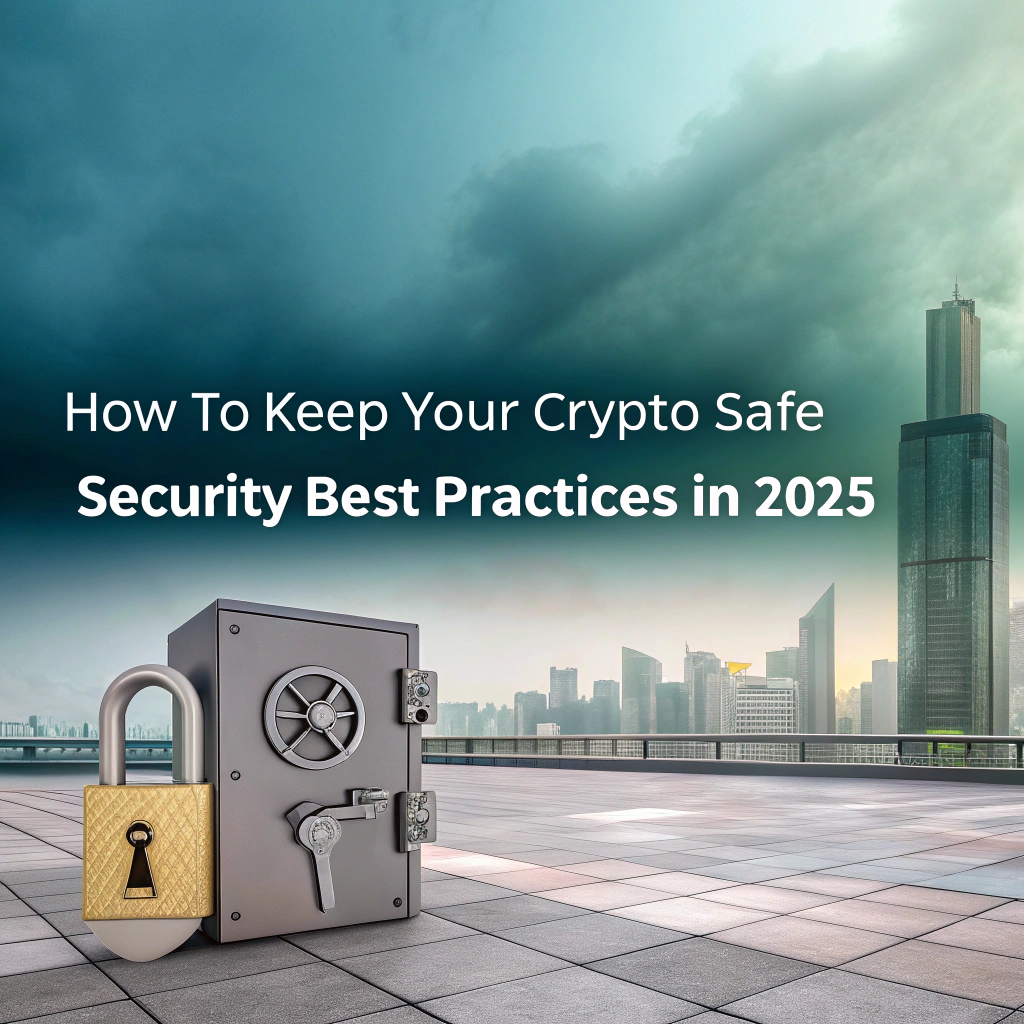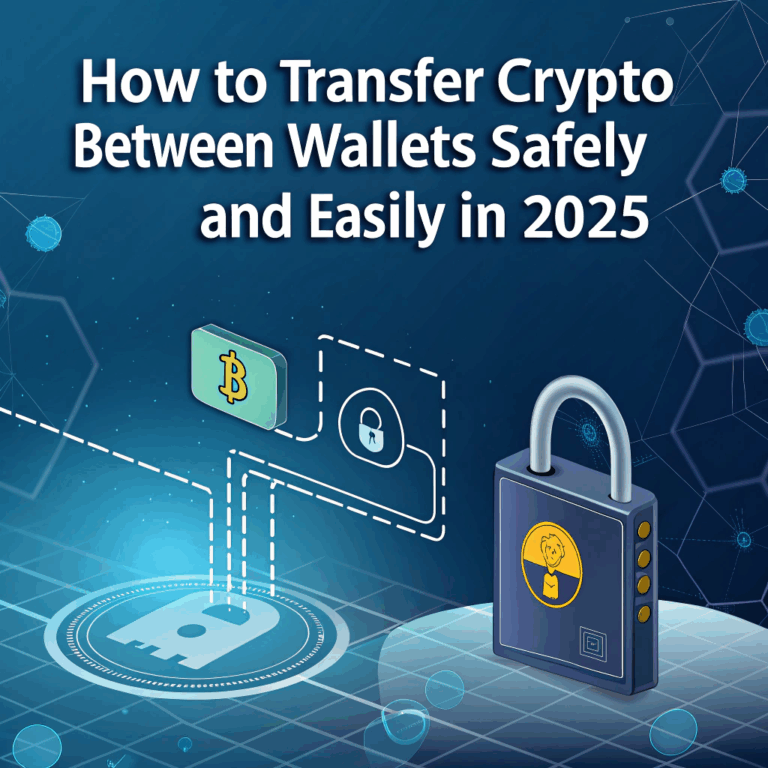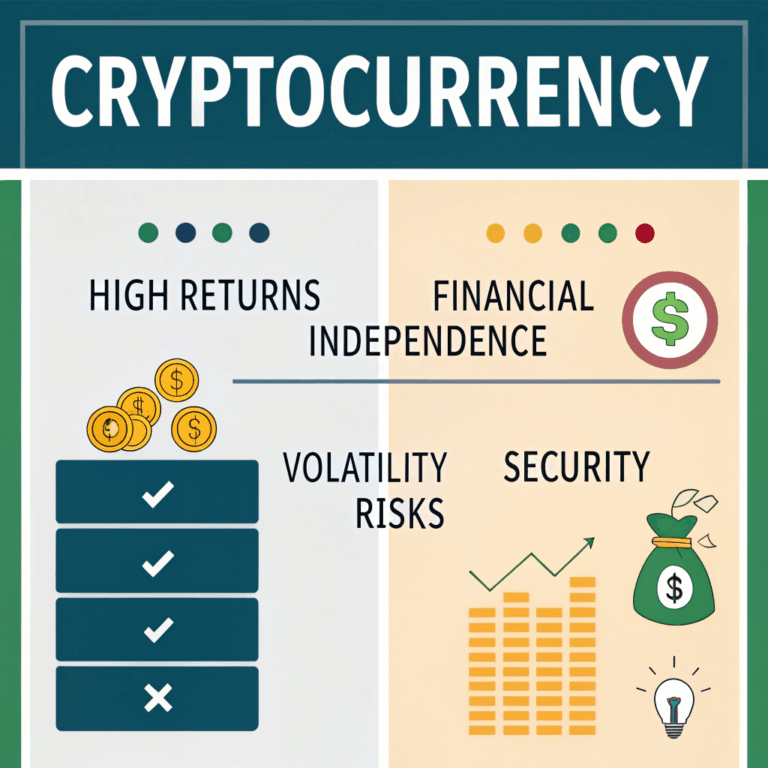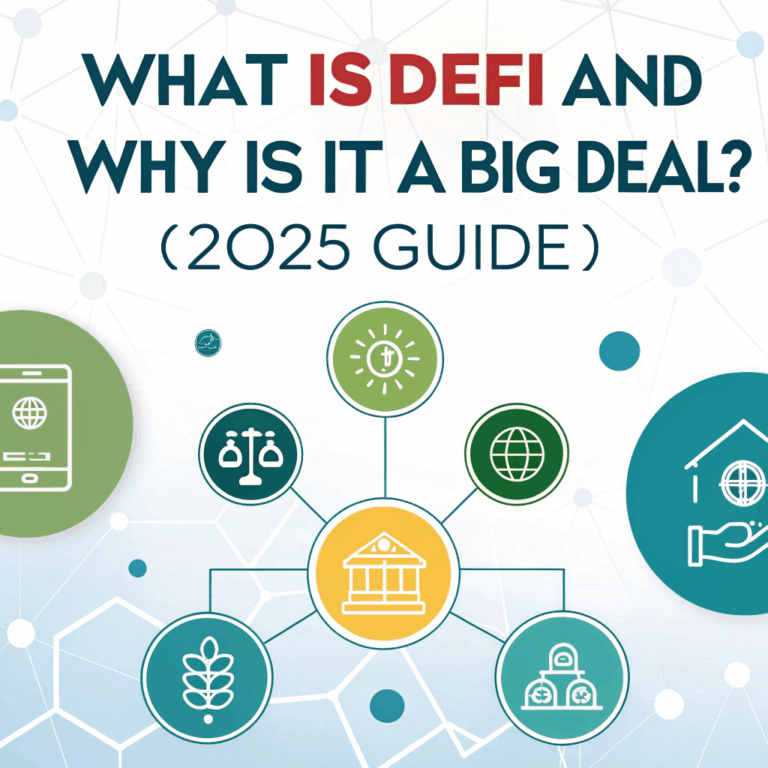How to Keep Your Crypto Safe: Security Best Practices in 2025

Introduction
Cryptocurrency empowers you to be your own bank. But with that freedom comes responsibility — especially for security. In 2025, cyber threats are more advanced than ever. This guide teaches you how to safeguard your assets and avoid common traps.
Why Security Matters More Than Ever
Billions of dollars in crypto are lost each year to scams, hacks, and careless mistakes. Unlike traditional banks, crypto has no customer service to recover lost funds. You are the first and last line of defense.
The Biggest Threats to Your Crypto
- Phishing emails and fake websites
- Malware or keyloggers on your device
- Fake wallet apps
- Rug pull or exit scams
- Exchanges being hacked
- Losing your seed phrase or private key
Secure Your Wallet: Hot vs. Cold
| Feature | Hot Wallets | Cold Wallets |
|---|---|---|
| Internet Access | Always connected | Offline |
| Convenience | Very easy to access | Requires extra steps |
| Risk Level | Higher (online threats) | Lower (physical safety) |
| Ideal For | Small, daily usage | Long-term storage |
Use hot wallets (like Trust Wallet or MetaMask) for small amounts. Use cold wallets (like Ledger or Trezor) for long-term holdings.
Use Strong Passwords and 2FA
- Create unique passwords for each crypto platform
- Use a password manager
- Always enable 2FA (Two-Factor Authentication) — prefer Google Authenticator over SMS
- Change passwords regularly
Beware of Phishing and Scams
- Never click on links in suspicious emails or DMs
- Bookmark official exchange URLs
- Don’t trust unsolicited offers or giveaways
- Double-check URLs (e.g., binance.com vs. bínance.co)
Secure Your Seed Phrase and Private Keys
- Never store them online or in cloud storage
- Write them down and keep them in a secure place (like a safe)
- Never share them with anyone — ever
- Consider using a metal backup (fireproof, waterproof)
If you lose your seed phrase, you lose your funds. Period.
Avoid Public Wi-Fi and Shared Devices
- Don’t access your wallet on public Wi-Fi without a VPN
- Avoid using public or shared computers for crypto transactions
- Ensure your device is protected with antivirus and firewall software
Don’t Keep Large Funds on Exchanges
Even the biggest exchanges (like Binance or FTX) have been hacked. Use them for trading, not for long-term storage. Withdraw to your personal wallet as soon as possible.
Watch Out for Fake Apps and Sites
- Only download wallets or exchanges from official sources
- Check user reviews and download counts
- Be wary of ads that appear above search results — they could be malicious
Advanced Tips for Serious Holders
- Use a hardware wallet with multi-signature features
- Store backups of your seed phrase in multiple secure locations
- Monitor wallet addresses and transactions via blockchain explorers
- Regularly audit your security setup
FAQ
Is crypto really that easy to steal?
Yes, if you’re careless. But it’s extremely secure when handled properly.
Can I use cloud backup for my wallet?
Never. If your cloud account is hacked, your crypto is gone.
Are cold wallets 100% safe?
They’re the safest option — but only if you protect them physically and don’t share your seed phrase.
How often should I check my wallet?
Weekly is enough unless you’re actively trading.
Conclusion
In crypto, security isn’t optional — it’s survival. The more value you hold, the more you become a target. Take time to build good habits, choose the right tools, and stay alert. Your future wealth depends on the steps you take today.





